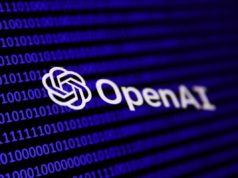What goes into making a computer understand the world through senses, learning and experience, as IBM says Watson does? First and foremost, tons and tons of data.
To build a body of knowledge for Watson to work with on Jeopardy, researchers put together 200 million pages of content, both structured and unstructured, including dictionaries and encyclopedias. When asked a question, Watson initially analyzes it using more than 100 algorithms, identifying any names, dates, geographic locations or other entities. It also examines the phrase structure and the grammar of the question to better gauge what’s being asked. In all, it uses millions of logic rules to determine the best answers.
Today Watson is frequently being applied to new areas, which means learning new material. Researchers begin by loading Word documents, PDFs and web pages into Watson to build up its knowledge. Question and answer pairs are then added to train Watson on the subject. To answer a question, Watson searches millions of documents to find thousands of possible answers. Along the way it collects evidence and uses a scoring algorithm to rate each item’s quality. Based on that scoring, it ranks all possible answers and offers the best one. The video below explains the process in more detail.
Over time, Watson learns from its experience. It’s also updated automatically as new information is published. In terms of nuts and bolts, Watson uses IBM’s DeepQA software along with a variety of other proprietary and open-source technologies. In its original form, that included Hadoop and Apache UIMA (Unstructured Information Management Architecture) software and a cluster of 90 Power 750 computers packing a total of 2880 processor cores.
Today Watson is delivered via the cloud, but as competition heats up, IBM is keeping quiet about the underlying specifics.
“Our DeepQA reasoning and other foundational cognitive skills make use of deep-learning techniques, proprietary algorithms and open-source kernels and frameworks that make use of hardware technologies that are optimized for those workloads,” said IBM Watson vice president and CTO Rob High.







